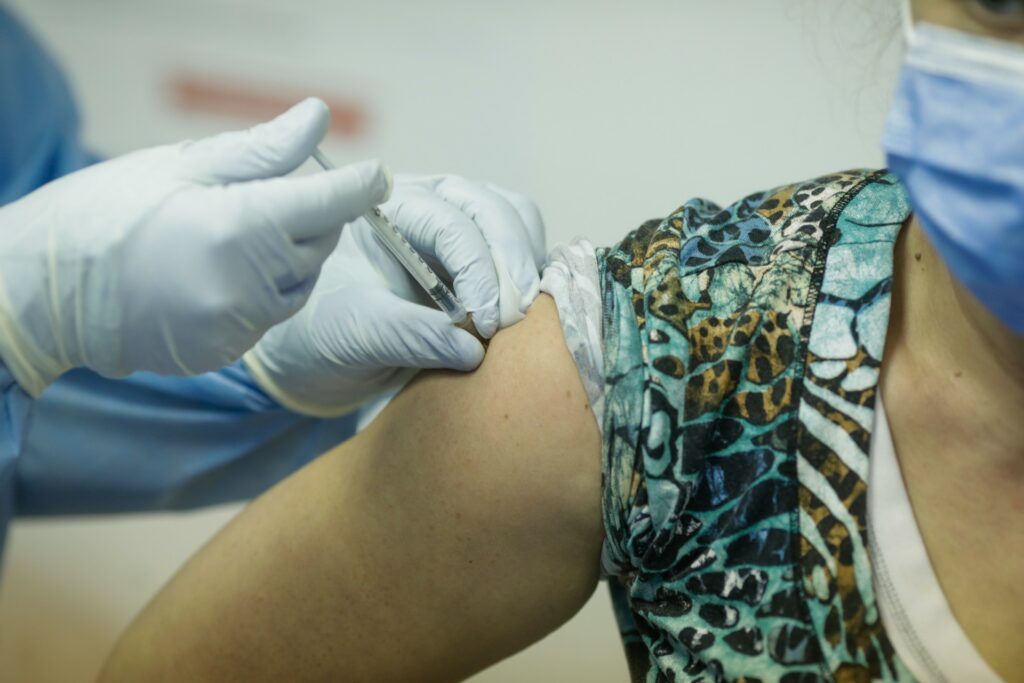Vaccines and Skincare

Whether a COVID-19 booster or flu shot, vaccines continue to be a dividing topic among Americans. Whatever your feelings on the subject, people are wise to recognize how vaccines and skincare are connected so that if experiencing adverse skin effects post-shot, action can be taken to provide relief. Vaccines and skincare both work to get compounds into places that are hard to reach, but many have questioned the connection between vaccines and suddenly appearing or worsening skin conditions.
The beauty industry should note that vaccines are suspected of triggering unwanted skin conditions and that providing customers solutions through focused product development will significantly affect future beauty seekers’ future purchases. Providing skincare solutions for today’s skin issues is the only way for invested and caring dermatologists to stay ahead of the curve on behalf of their patients.
The Skin’s Protective Layer
Skin is like a giant cell wall, providing protection. So, like vaccines that require active ingredients to penetrate, skincare products also need certain ingredients to get past the protective skin cell wall. Skincare products must contain the right active ingredients to penetrate the outer layer to make them effective and successful.
Products Not Updating Will Become Irrelevant
Beauty product companies want customers to experience immense benefits from their products. Unfortunately for customers, previously active ingredients that did the trick are not necessarily getting the job done any longer. Beauty customers are associating many popular beauty products with lackluster results. The high potential of vaccine interference in the effectiveness of a product leads people to assume that products simply do not work. This movement has beauty companies scrambling to re-test and find solutions for today’s skincare customers.
Providing skincare clients with products that offer transformational benefits for their skin must rethink the active ingredients and how they interact with vaccinated skin. Only by visiting a reputable and experienced dermatologist can patients determine proper skin type identification, including a thorough and detailed history done by a professional dermatologist. One visit and sticking to a skincare treatment plan can quickly maximize the skin’s beauty potential.
Eczema Flare-Ups Post-Vaccination
The days following vaccinations may cause eczema flare-ups, which is a valid concern for many skincare patients with this troubling experience. Eczema treatment plans are easy to integrate and follow when suggested through a reputable and excellent dermatology office. Professionals in skincare have a pulse on the changes to skin’s ability to be treated, even with vaccines and boosters. Although a combination of moisturizer and topical barrier creams are usually incredibly effective, getting the right product on the skin the first time can target specific eczema symptoms. An effective treatment plan brings the skin back to its natural beauty after experiencing negative post-vaccination symptoms.
Allergic Skin Rash Reactions to Shots
A typical skincare reaction to shots is at the site of the injection. Itching and tingling should not be ignored in case they are the beginning of more severe symptoms, like shortness of breath. However, a bump and itching are typical where the shot is received. Sometimes called the “COVID arm,” often the skincare reaction dissipates on its own. If the area where the injection was given does not improve or worsen, visit a dermatologist immediately. Even itching, when people give in to the temptation, can worsen the reaction. A topical cream may be provided, or in some cases, an antihistamine can be taken orally. Skin reactions initially are less concerning than those that seem to appear later. Keep an eye on the skin, and do not rule out the possibility that vaccinations may trigger a change in the skin.
Other areas that may become itchy post-vaccination are the palms of the hands or the bottoms of the feet. A splotchy, red rash may appear, followed by itching. Regardless of the skin’s reaction, any changes should be noted, and information shared before receiving additional shots. As much controversy still surrounds the COVID-19 boosters, information helps provide current data so future doses can be safer and alternatives found.
The skin’s reaction and severity may depend on skin type, skin color, diet, and several other factors. Skincare conditions and concerns can be diagnosed and treated by a licensed professional. Using a local dermatologist who is also familiar with environmental factors in the area that affect the skin is a significant advantage for those wanting to get back their skin’s health and beauty. Contact Buckhead Dermatology for exceptional care and treatment if you are in the Atlanta area and are experiencing any adverse skin reactions after receiving a shot. Unmatched in quality and experience, Dr. Sherrie Straughn is the best available, successfully helping clients of all skin tones and types. Since skincare is a top priority for the best dermatologists, understanding how vaccines and other shots affect the skin is part of continued training.
